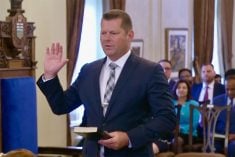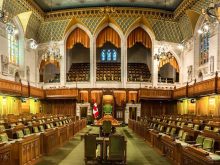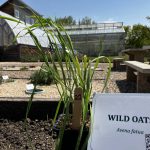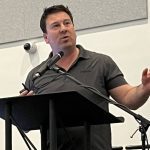No matter how you feel about our newly elected federal government, I think all Grainews readers can agree on one thing: federal government employees in Ottawa can never really understand Prairie farms.
Before I married a farmer and moved to southeast Saskatchewan, I had a provincial government job in Regina. I can tell you — life as a Regina bureaucrat is nothing like life on the farm.
I’d grown up on a grain farm, I’d worked for the provincial ag department, and I thought I knew everything I needed to know about agriculture and farm living. This won’t shock you: I was wrong. Prairie farm life is unique.
Read Also
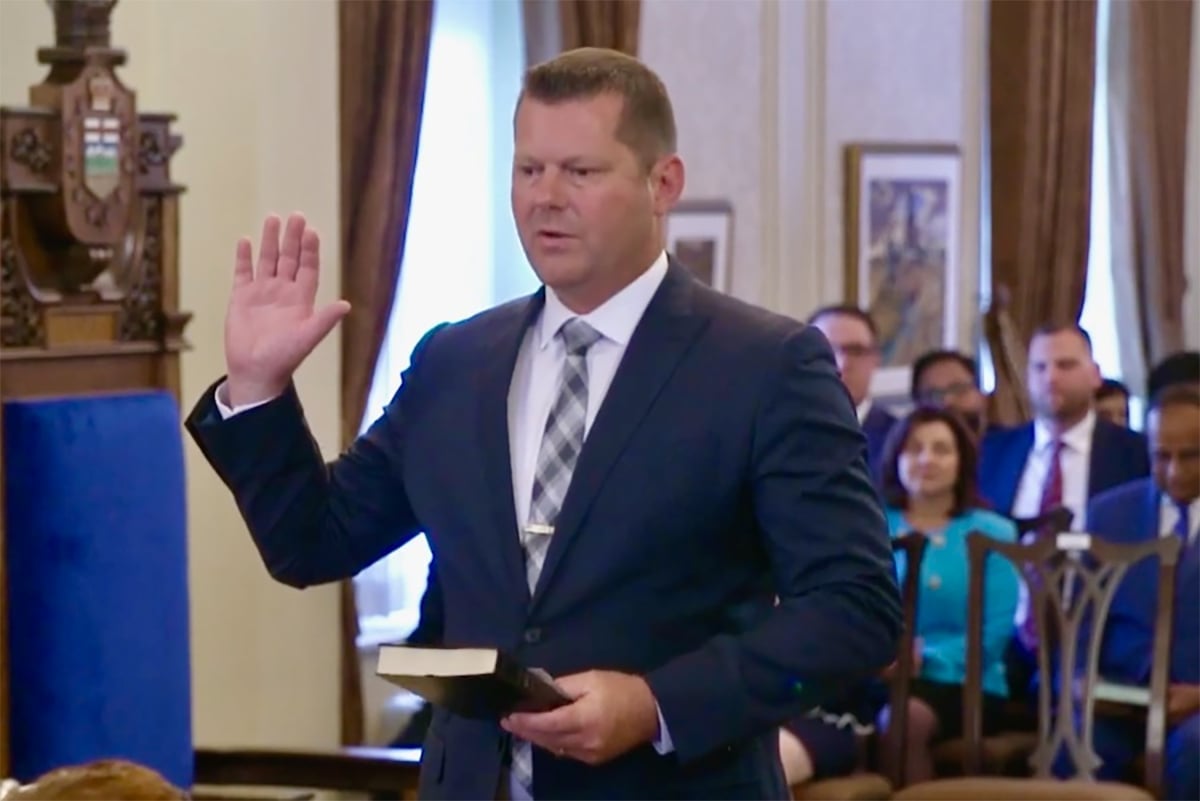
Alberta agriculture minister faces recall petition
The number of approved recall petitions has risen to nine for Premier Danielle Smith’s United Conservative Party caucus after Monday’s confirmation to Alberta’s chief electoral officer.
And I’m talking about the contrast between Regina and southeast Saskatchewan. How impossible would it be for someone living and working in downtown Ottawa to understand everyday life on a Prairie farm?
I won’t pretend to know what it’s like to live in our federal capital. But since spending a few days there in December, I’ve been thinking about things that are wildly different between here and there. It’s not that surprising that, no matter who’s in charge, the ideas coming from Ottawa don’t always fit our needs. Here are four of the most obvious differences.
1. French is partout
As far as I know, partout is French for “everywhere.” But I know so little French, I had to rely on Google for that translation.
Here in Saskatchewan, my inability to speak French doesn’t impact my life. I can go weeks without hearing anyone utter a French word. On a Tuesday in Weyburn, I’m way more likely to hear Tagalog or Spanish than French. My son is in third grade, and his class has never been offered any sort of French instruction. We only hear French in my house when someone tries to read out loud from a cereal box.
Visiting Ottawa is like travelling to another country. Signs are bilingual. People in restaurants flip between English and French faster than farmers switch between miles and kilometres. Retail clerks greet me in French, as if everyone is born speaking it.
I was in Ottawa for a meeting with people from across the country — French and English parts of Canada. Two interpreters spent the day speaking into microphones in a glassed-in room, translating everything so unilingual dopes like me could follow along. I had to wear a large hair-smushing headset while all of the metropolitan Ottawa residents easily switched from “yes” to “oui,” with un-mussed hair.
If I lived in Ottawa, immersed in French, I would have a better chance at picking up the language. Heck, by the end of the meeting, I almost thought I could understand what the French speakers were saying. But for anyone living in a unilingual community, learning French, or understanding the need to learn French is not easy.
Being surrounded by two official languages all day every day would give you a different sense of Canada as a country, especially if your job was to create government programs for all Canadians.
2. All of the choices
You and I know that there are lots of things to do in rural Saskatchewan, but, as one of my friends once said about her small Prairie town, “it’s a nice place to live, but I wouldn’t want to visit.”
Ottawa, on the other hand, is a place anyone would want to visit. It’s a grand showcase for our entire country.
Over the years, as we’ve been mailing our tax dollars east, they’ve been gathering up the cash and turning it into museums and galleries. There’s the National Arts Centre, the Museum of Nature, the Canadian War Museum, the Canadian Science and Technology Museum and the Canada Agriculture and Food Museum. I’d list more, but I only have one page for this.
Canada is such a vast country that many Canadians will never even see Ottawa. It’s my opinion that we should have a national government program that would pay to send every Canadian to our national capital once in a lifetime, so everyone could get a look at all of these things we’re paying for.
If you spent your Saturday morning deciding whether to take your children to the national science museum or to an international ballet, you’re having a very different day than someone who took their kid skating with the neighbours at the local natural ice rink.
Living in Ottawa would give you a very different sense of cultural opportunities, and a different idea of what everyday Canadians think of as “normal.”
3. The history
Most of our Prairie history survives only in stories. There may have once been a tipi ring, a pioneer’s sod shack and a wagon train rut in the space that I call my front lawn, but that’s long gone.
Meanwhile, there are 25 National Historic sites right in Ottawa. The oldest of these is a home built in 1829. (The oldest standing building in Saskatchewan was built in 1860, the Holy Trinity Anglican Church in Stanley Mission.)
Even if you never darkened the door of an actual historic site, you couldn’t work in downtown Ottawa without looking up at our Parliament Buildings (the oldest part, the West Block, was completed in 1865).
Being surrounded constantly by the stone walls of so many historical buildings would give you a very different sense of what Canada is all about, and how our history connects to our future.
4. A lot of civil servants
The 2011 census found 135,865 federal civil servants in the Ottawa-Gatineau metropolitan area. This was out of a total population of just under 1.3 million. So, if you were in a Tim Hortons with 10 people in Ottawa, odds are at least one would be taking a coffee break from a federal government job. This statistic doesn’t include civil servants working for the province of Ontario, or people mixed up with health care or education.
In all of Saskatchewan in 2011, there were 10,260 federal civil servants.
With this many federal employees in one place, Ottawa also has a relatively high median family income ($73,500). If you lived in Ottawa, it would be easy to forget that not everyone has a full-time well-paid steady job with high-end benefits and a generous retirement package. It’s not like that in southeast Saskatchewan, especially during an oil bust.
And so…
For me, Ottawa is a foreign country. It doesn’t matter if our federal politicians come from Calgary, Quebec or Iqaluit. The lives of people living in Ottawa are so different from ours in the rural West that our federal government may never understand our needs. The best we can hope is that they take the time to understand our differences.




